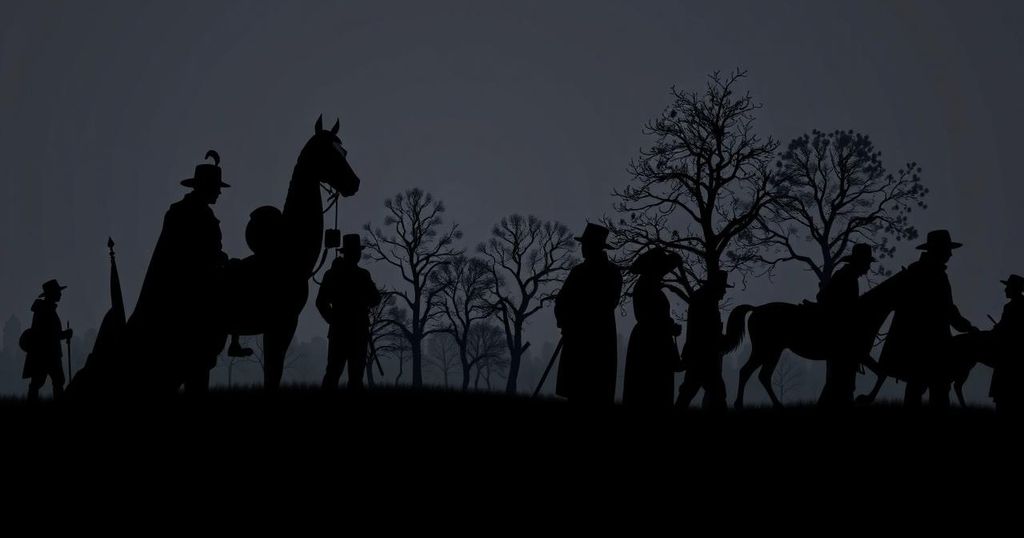Confronting Colonial Legacy: The Netherlands’ Struggle with Historical Accountability

The article explores how the Netherlands struggles with its colonial past, particularly regarding its brutal history in Indonesia. Despite being viewed as a liberal nation, public sentiment remains largely defensive of its colonial legacy. Statues of figures like Jan Pieterszoon Coen continue to evoke controversy, with many Dutch citizens viewing colonialism as a source of pride rather than shame. The absence of comprehensive apologies for pre-1945 colonial violence underscores ongoing societal challenges in reckoning with historical atrocities.
In recent years, the Netherlands has grappled with its colonial past, revealing significant discomfort among its citizens regarding the country’s portrayal as villains rather than victims of historical atrocities. While anti-racist protests worldwide have led to the removal of statues celebrating figures associated with slavery and colonialism, the political climate in the Netherlands remains resistant to fully addressing its colonial legacy, particularly concerning its actions in Indonesia. Beginning with the colonization efforts of the Dutch East India Company (VOC) in the 1600s, the Dutch justified their imperial ambitions as a “civilizing mission,” suggesting that Indonesians required European oversight to modernize. However, this narrative masks a history of extensive brutality, including systematic torture, killings, and exploitation under colonial rule. Notably, Indonesian civilians suffered at the hands of Dutch forces, particularly during the era led by Jan Pieterszoon Coen, whose expansionist actions in the Banda Islands resulted in significant loss of life. Despite ongoing protests advocating for a re-evaluation of historical figures such as Coen, many in the Netherlands persist in romanticizing colonial leaders. For instance, Coen has a statue in Hoorn, which faced calls for removal, yet local authorities opted instead to place a plaque that inadequately balanced his violent legacy with glorification. Another contentious figure is J.B. van Heutsz, whose monument in Amsterdam has seen graffiti demands for accountability for the thousands of Indonesian deaths during his tenure. The broader Dutch societal view still largely perceives colonialism as a matter of pride; a 2019 survey indicated that half of the population regarded it positively. In stark contrast, the collective memory in Belgium regarding its colonial rule, particularly in relation to King Leopold II’s reign over the Congo, has resulted in rapid memorial re-evaluation and public discourse. In response to civil unrest and historical reckoning, the recently elected Dutch government has offered selective apologies for specific incidents and recognized past violence. Nonetheless, there remains an absence of formal acknowledgment of broader colonial violence and oppression, especially prior to Indonesia’s independence. As the Netherlands confronts its colonial narrative, the tension between national pride and an unwillingness to own past atrocities prevails, hinting at deeper societal divisions. Ultimately, the contrast with Belgium’s more progressive stance on colonial accountability underscores the ongoing challenges faced by the Dutch in reconciling their historical legacy with contemporary values.
This article addresses the complexities surrounding the Netherlands’ colonial history, particularly its involvement in Indonesia from the 1600s onward. Despite being perceived as a progressive nation, the Dutch political, cultural, and public psyche is grappling with its legacy of colonialism. Noteworthy figures from this period, such as Jan Pieterszoon Coen and J.B. van Heutsz, are emblematic of the brutal history that is often overshadowed by a narrative of civilizational uplift. The movements to remove commemorative statues highlight the evolving discourse related to colonial re-evaluation, where citizens and activists seek to confront not only the physical symbols of past oppressors but also the ideological underpinnings of historical memory ingrained in Dutch identity. The article contrasts the Dutch response to colonial history with Belgium’s more proactive stance, revealing through surveys and public sentiment the broader implications of colonial legacy in shaping national identities.
In summary, the Netherlands exhibits a complex relationship with its colonial past, often preferring narratives that portray the nation as a victim rather than a perpetrator. This discomfort manifests in active resistance to changing the representation of colonial figures, as illustrated by ongoing debates over statues and public discourse. The Dutch government’s selective acknowledgment of colonial violence reflects a larger societal issue, where many citizens cling to colonial pride. As discussions surrounding accountability continue to unfold, the stark contrast with Belgium’s approach serves as a critical lens for evaluating how nations can better confront their historical wrongs and evolve their collective memory.
Original Source: foreignpolicy.com







